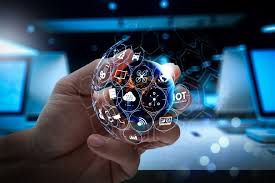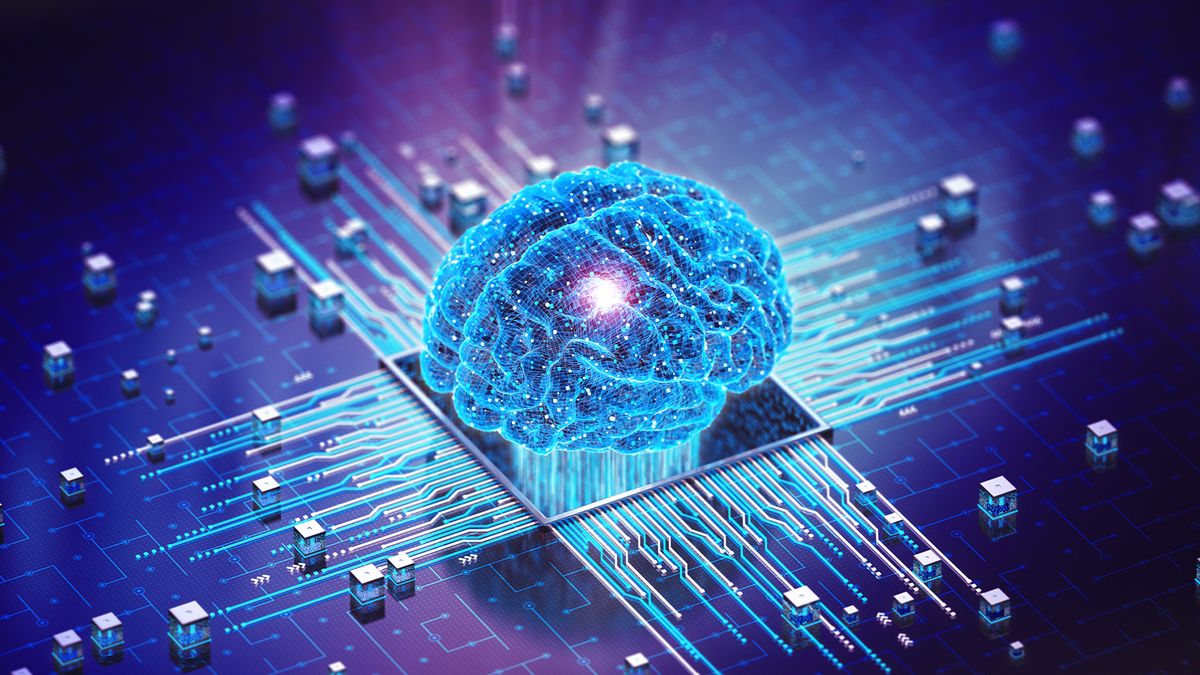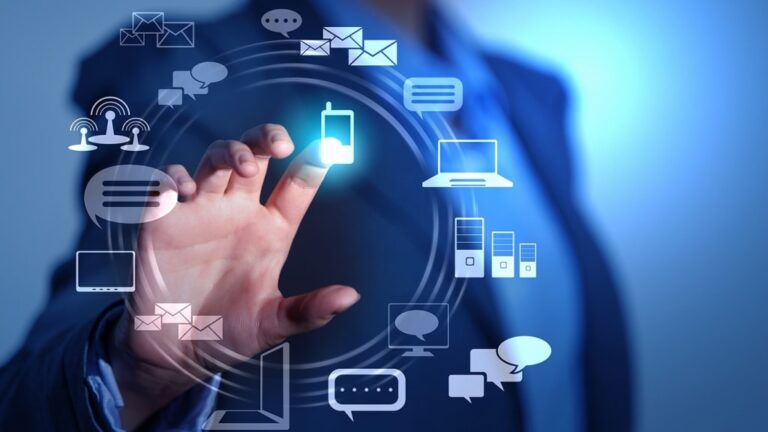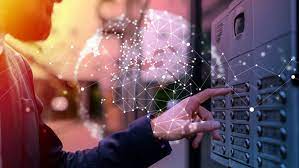Intelligent Devices Revolutionizing Our World
In the 21st century, intelligent devices have become the backbone of modern society, transforming how we live, work, and interact with the world. From smartphones that anticipate our needs to smart home systems that optimize energy use, these devices are redefining convenience, efficiency, and connectivity. This article explores the evolution, applications, benefits, challenges, and future potential of intelligent devices, offering a comprehensive look at their impact on our lives.
What Are Intelligent Devices?
Intelligent devices, often referred to as “smart” devices, are electronic gadgets embedded with advanced computing capabilities, sensors, and connectivity features. These devices can collect data, process it, and make decisions or take actions with minimal human intervention. Powered by artificial intelligence (AI), machine learning (ML), and the Internet of Things (IoT), intelligent devices range from consumer products like smartwatches to industrial tools like autonomous robots.
The defining characteristics of intelligent devices include:
- Connectivity: Most intelligent devices connect to the internet or other devices, enabling seamless data exchange.
- Sensors: Built-in sensors detect environmental changes, such as temperature, motion, or light.
- Automation: These devices can perform tasks autonomously based on programmed algorithms or learned behaviors.
- Data Processing: They analyze data in real-time to provide insights or optimize performance.
Examples include smartphones, smart thermostats, wearable fitness trackers, and even autonomous vehicles. These devices are designed to enhance efficiency, improve user experience, and adapt to individual preferences.
The Evolution of Intelligent Devices
The journey of intelligent devices began with the advent of computers in the mid-20th century. Early computers were large, cumbersome, and lacked the connectivity we associate with modern smart devices. The introduction of microprocessors in the 1970s marked a turning point, enabling smaller, more powerful devices. By the 1990s, personal digital assistants (PDAs) like the PalmPilot hinted at the potential for portable, intelligent gadgets.
The real breakthrough came in the 2000s with the rise of smartphones. The launch of the iPhone in 2007 revolutionized the concept of a connected device, combining communication, computing, and internet access in one sleek package. Simultaneously, advancements in AI and IoT fueled the development of other intelligent devices, from smart home assistants like Amazon’s Alexa to industrial IoT systems that monitor factory equipment.
Today, intelligent devices are ubiquitous, with billions of connected devices worldwide. According to industry estimates, the number of IoT devices is expected to surpass 30 billion by 2030, driven by advancements in 5G, edge computing, and AI algorithms.
Applications of Intelligent Devices
Intelligent devices have permeated nearly every aspect of life, offering innovative solutions across industries. Below are some key applications:
1. Consumer Electronics
Smartphones, smartwatches, and smart speakers are among the most recognizable intelligent devices. These gadgets enhance daily life by offering personalized experiences. For instance, fitness trackers monitor heart rate and suggest workouts, while smart speakers like Google Home respond to voice commands to play music or control home appliances.
2. Healthcare
In healthcare, intelligent devices are revolutionizing patient care. Wearable devices monitor vital signs, alerting users and doctors to potential health issues. Smart insulin pumps adjust dosages in real-time for diabetic patients, while AI-powered diagnostic tools analyze medical images with unprecedented accuracy.
3. Smart Homes
Smart home devices, such as thermostats, security cameras, and lighting systems, optimize energy use and enhance security. For example, a smart thermostat learns a household’s schedule and adjusts heating or cooling to save energy, while smart doorbells provide real-time video feeds to homeowners’ phones.
4. Industrial Automation
In industries, intelligent devices like IoT sensors and autonomous robots streamline operations. Factories use sensors to monitor equipment health, predicting maintenance needs before breakdowns occur. Autonomous drones inspect infrastructure like bridges or pipelines, reducing costs and improving safety.
5. Transportation
Intelligent devices are at the heart of autonomous vehicles, which use sensors, cameras, and AI to navigate roads. Smart traffic systems optimize traffic flow, reducing congestion and emissions. Ride-sharing apps like Uber use intelligent algorithms to match drivers with passengers efficiently.
6. Agriculture
In agriculture, smart sensors monitor soil moisture and weather conditions, enabling precision farming. Drones equipped with AI analyze crop health, while automated tractors optimize planting and harvesting, increasing yields and reducing waste.
Benefits of Intelligent Devices
The proliferation of intelligent devices has brought numerous benefits, transforming how we interact with technology and each other.
- Convenience: Devices like smart assistants simplify tasks, from setting reminders to ordering groceries online.
- Efficiency: Automation reduces manual effort, saving time and resources in homes and industries.
- Personalization: AI enables devices to tailor experiences to individual users, such as recommending movies or adjusting home temperatures.
- Sustainability: Smart devices optimize resource use, reducing energy consumption and environmental impact.
- Safety: Intelligent security systems and autonomous vehicles enhance safety by minimizing human error.
For example, a smart refrigerator can track food inventory and suggest recipes based on available ingredients, reducing food waste. In industries, predictive maintenance powered by intelligent devices prevents costly downtime, saving businesses millions annually.
Challenges and Concerns
Despite their benefits, intelligent devices pose challenges that must be addressed to ensure their responsible use.
1. Privacy and Security
Intelligent devices collect vast amounts of data, raising concerns about privacy. For instance, smart speakers may record conversations, and security cameras could be hacked, exposing personal information. Robust encryption and transparent data policies are essential to protect users.
2. Interoperability
With multiple manufacturers producing smart devices, compatibility issues arise. A smart home device from one brand may not work seamlessly with another, frustrating users. Industry standards like Matter aim to address this, but adoption is ongoing.
3. Cost
High-end intelligent devices can be expensive, limiting access for some consumers. Additionally, the cost of maintaining and updating these devices can add up over time.
4. Digital Divide
Not everyone has access to the infrastructure needed for intelligent devices, such as high-speed internet. This digital divide exacerbates inequalities, particularly in rural or underserved areas.
5. Ethical Considerations
AI-powered devices raise ethical questions, such as bias in algorithms or the potential for job displacement due to automation. Ensuring fairness and accountability in AI development is critical.
The Future of Intelligent Devices
The future of intelligent devices is bright, with emerging technologies poised to push boundaries further. Here are some trends to watch:
1. Advanced AI Integration
Future devices will leverage more sophisticated AI, enabling them to anticipate needs with greater accuracy. For example, a smart assistant might predict a user’s schedule and adjust home settings proactively.
2. Edge Computing
Edge computing allows devices to process data locally, reducing latency and improving privacy. This will enable faster, more secure intelligent devices, particularly in autonomous vehicles and industrial applications.
3. 5G and Beyond
The rollout of 5G and future 6G networks will enhance connectivity, enabling real-time communication between devices. This will support applications like smart cities, where traffic, energy, and public services are optimized seamlessly.
4. Sustainability Focus
As environmental concerns grow, intelligent devices will prioritize sustainability. Smart grids will balance energy demand, while IoT devices will optimize resource use in agriculture and manufacturing.
5. Human-Machine Collaboration
Intelligent devices will increasingly act as partners rather than tools. For instance, exoskeletons could assist workers in physically demanding tasks, while AI-powered tutors could personalize education for students.
Conclusion
Intelligent devices have transformed our world, offering unparalleled convenience, efficiency, and connectivity. From smart homes to autonomous vehicles, these devices are reshaping industries and improving lives. However, challenges like privacy, interoperability, and ethical concerns must be addressed to ensure their benefits are accessible to all. As technology advances, intelligent devices will continue to evolve, promising a future where humans and machines collaborate seamlessly to solve complex problems and enhance our quality of life.
Whether you’re using a smartphone to navigate your day or a smart sensor to monitor your home, intelligent devices are here to stay, driving innovation and shaping the future. Embracing their potential while addressing their challenges will be key to unlocking a smarter, more connected world.






